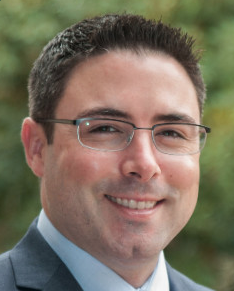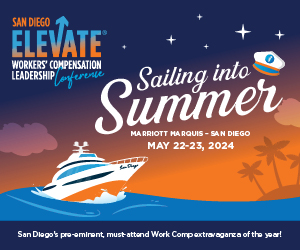Castillo: Time to Fix the Problem
Friday, December 20, 2019 | 0
Coming on the heels of the California State Auditor's recent report detailing the lack of qualified medical evaluators in the state workers' compensation system and its impact on injured workers, the Division of Workers' Compensation held a previously scheduled meeting on Dec. 6 regarding the QME system.

Michael Castillo
Pulling together stakeholders from employer and insurance company groups as well as doctors and medical-legal groups, the meeting focused on improving QME report quality, the QME process as a whole and the Medical-Legal Fee Schedule.
The DWC was asked to address issues found within the audit, which included:
- The number of QMEs has declined steadily since fiscal year 2013-14, while requests for services have risen significantly, resulting in delays for injured workers in resolution of their disputes, and thus possible delays in benefits for workers and increased costs for employers.
- Despite the shortage of QMEs, no studies or analyses have been conducted to determine if accessing QMEs is a problem, and no steps have been taken to address the shortage.
- The rates in the Medical-Legal Fee Schedule that QMEs use to charge for their services have not been updated since 2006 and are 30% lower than what the rates would be if adjusted for inflation.
- No policies have been implemented to ensure QMEs produce high-quality reports that provide medical evidence to help judges and others to resolve disputes in a timely manner.
Discussion was had on improving report quality through better QME education, primarily with relation to the understanding of the AMA Guides, report writing and current case law. The groups also discussed improving the QME process as a whole through revised forms, extending appointment deadlines and a proposed third-party central records organizer to organize medical records for QME evaluations.
The end of the meeting centered on addressing the badly needed update to the Medical-Legal Fee Schedule. CAAA proposed an emergency regulation for a 30% increase for physicians acting as QMEs based on the audit findings, which was sadly shot down.
Medical providers and payers each came up with competing proposals for an increase, to which the DWC suggested a compromise. However, it was agreed that another meeting needed to be scheduled solely to discuss the fee schedule and has now been set for Jan. 10.
CAAA, on hand as a sole voice for injured workers, made several other recommendations including the need for a modifier or add-on to proposed rates as an incentive for doctors to perform quality work on complex cases. CAAA also suggested that Chapters 1 and 2 and Almaraz/Guzman be included in education for all doctors who act as QMEs, and we will be working to supply language and other key case law to cover in the DWC's educational offerings.
While several issues still need to be addressed and expedited judiciously, we hope to work with the DWC and move forward as quickly as possible to explore fixes to the broken QME system to reduce delays and improve outcomes for injured workers.
Michael Castillo is communications director for the California Applicants' Attorneys Association. This opinion is republished, with permission, from the CAAA website.




Comments